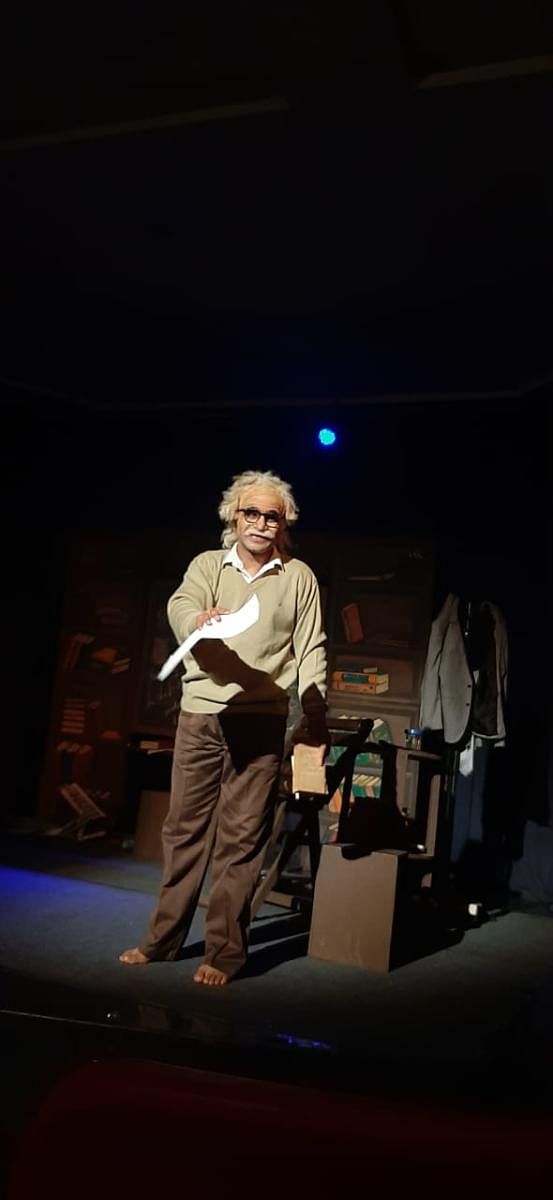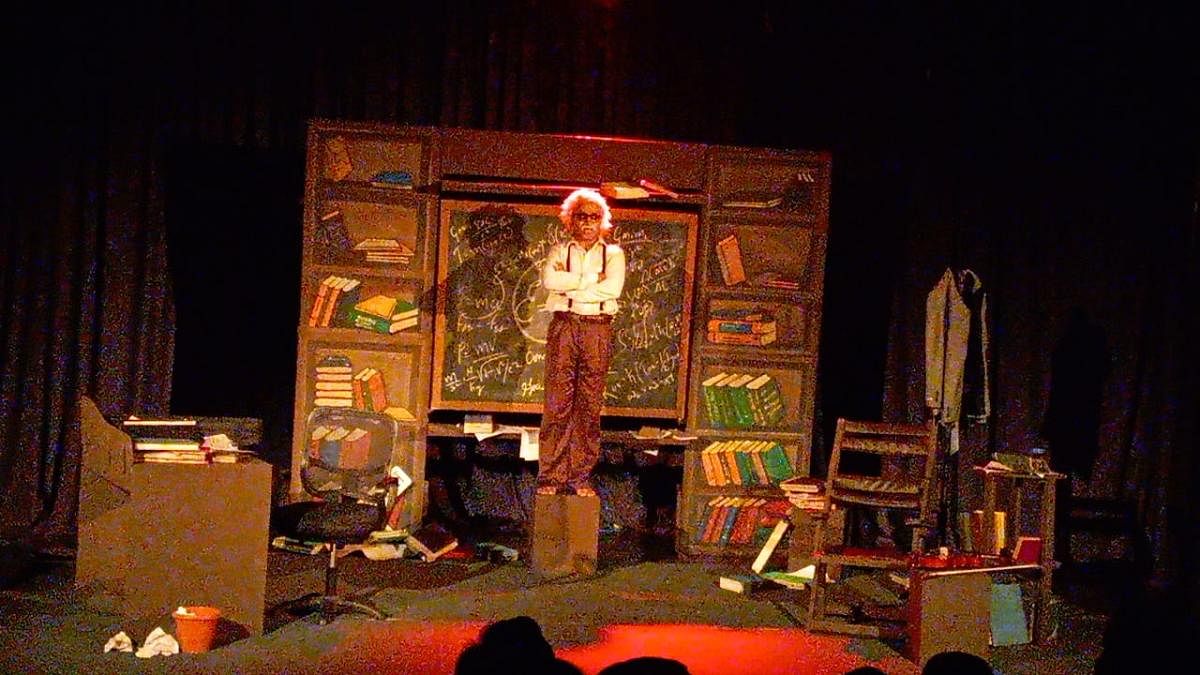
Blending art and science, a Kannada play, ‘Einstein’, was organised by Gombemane (puppet house), a theatre troupe in Dharwad district. The solo performance based on the life and research of Nobel laureate scientist Albert Einstein was held at the M M Arts and Science College in Sirsi.
The play was written and directed by Prakash Garud, thespian and founder of Gombemane. The theatre and puppetry centre regularly conducts workshops and organises shows for children across Karnataka. ‘Einstein’ is set to be staged in two more colleges in the state.
Garud’s script was based on the work of playwright Gabriel Emmanuel on Einstein. Bringing the English play to Kannada, the performance appealed to the teachers and students alike.
The play ran for 80 minutes, with a brief intermission. The role of Einstein was played by Pavan Deshpande, a theatre artist who won over the spectators with his performance.
The scientist
Albert Einstein needs no introduction, especially to students of science, because of his contributions to theoretical physics, the theory of relativity and the photoelectric effect. It is lesser known that he had a passion for music, particularly the violin.
The play depicted his life, personality, identity and achievements. The solo performance presents various incidents from Einstein’s lifetime, along with notable sayings and views on education, science, religion and pacifism.
Like many other Indian plays, the content is based on historical accounts on the life of a well-known figure. In the play, the protagonist is noble and cares about nature. He possesses the ability to laugh at himself.
Narrative technique
The play can be classified as a bhana (a genre of Sanskrit drama with one act and one performer), since the entire story is told through a single character. It uses the technique of inner monologues to narrate interactions to the audience. In the play, Einstein’s recollection of his past is not chronological, with different emotions and memories arising at various points.
At the surface level, the speeches seem to be the babbling of a lunatic. But to the trained eye, the performance mixes dramatic elements of the realistic (lokadharmi), the comic (sukumaara) and the tragic (aaviddha).
Self-reflection
There is no self-glorification, only self-assessment accompanied by correction. The protagonist’s attitude is progressive, rejecting dogmas. The major issues highlighted in the play are the problems that come with commercialisation and fame.
The show begins and ends with violin music and includes the tune of ‘Vaishnava Janato’ a favourite of Mahatma Gandhi.
The play is one of the best theatrical depictions of the life of a scientist. Unlike Bertolt Brecht’s notable play on Galileo, which needed at least 30 actors, Gombemane’s play on Einstein is a solo performance.
